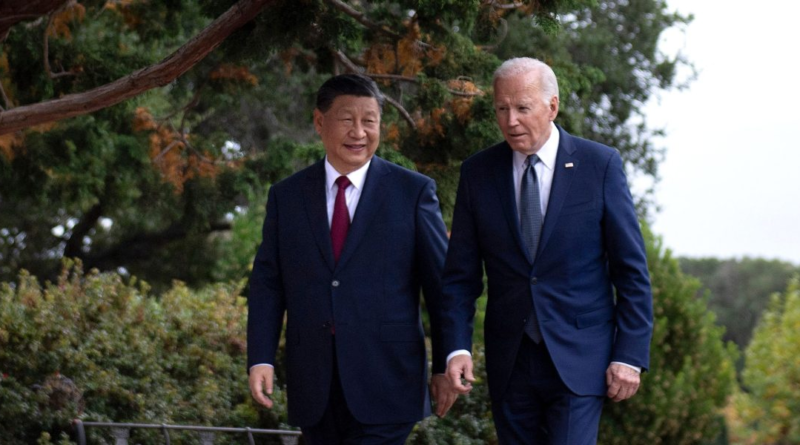Economist Stephen Roach, who thinks China has a gloomy economic future, says Biden is pushing the two countries into a ‘forever’ trade war
The escalating U.S.-China trade war could become a “forever war” that ultimately drags on with no clear end in sight, according to Stephen Roach, who is an expert on the Chinese economy.
The former chair of Morgan Stanley Asia took issue with the U.S.’s latest trade policies against China during public remarks in Beijing on Friday. A trade war between the two countries would be a “blunder” that would ultimately leave both worse off, Roach said in comments first reported by Bloomberg.
“I worry that Biden is getting himself even deeper into a new ‘forever war’ against Chinese trading practices,” Roach said.
The comments come after his earlier criticisms of China’s leadership drew Beijing’s ire. In February, Roach published an op-ed in the Financial Times that criticized the Chinese government’s harsh response to the Hong Kong protests in 2019 and 2020, saying “the imposition of a new Beijing-centric national security law, shredded any remaining semblance of local political autonomy” in the former British colony.
Those comments did not go over well with Chinese officials. Roach said he was asked not to discuss the topic when he spoke at the China Development Forum earlier this year. Still, he has also been vocal about his concerns about China’s rocky economy. The country’s real estate sector has been underwater, causing its largest developer, Evergrande, to go bankrupt. Meanwhile, Chinese consumers have curbed their spending, further holding back the economy.
“There’s a serious set of challenges that China faces,” Roach told CNBC in March. “They may have run out of imaginative solutions to tough problems.”
Against that backdrop, a trade war with the U.S., the world’s largest economy, has been heating up.
Over the last year, the Biden administration has implemented a series of new trade policies meant to curb China’s access to certain technologies, most notably semiconductors. In October 2023, the U.S. restricted access for Chinese companies to chips used in development of AI. The U.S. eventually recruited allies like Japan and the Netherlands to also implement some bans on AI chip sales to China.
China then answered with its own chip ban this year, with new barriers that targeted American companies such as Intel and AMD, whose products were phased out of its government systems. In addition, the Biden administration implemented stricter export bans to close a loophole that still let China acquire certain Nvidia chips.
The tit-for-tat between the U.S. and China has expanded to include companies in other industries as well. The possible forced sale of TikTok to an American company has also irked Chinese authorities, not to mention the social media company’s corporate parent ByteDance. More recently, the Biden administration instituted high tariffs on Chinese electric vehicles and a wide range of other clean energy products like solar cells and advanced batteries..
But Roach warned that whatever gains the U.S. might make in blocking Chinese semiconductor technology could be offset by China’s withholding of green energy developments.
“To take a protectionist stand against a country like China, that has a comparative advantage in producing the non-carbon alternative energy products that a world in the grips of climate change desperately needs is a blunder, potentially of historic proportions,” he said.
China is a world leader in many of the technologies that will either enable or power the energy transition. It makes 80% of the world’s solar panels, and is the top producer of wind energy.
Other critics echoed Roach’s sentiments that curbing imports of green tech is self-defeating. They, too, argued that limiting the free flow of green technologies would ultimately be a net negative for the U.S.’s efforts to address climate change.
The full consequences of the U.S.-China trade war will likely take years to be fully understood. In the meantime, no matter how grave their consequences may be, the tensions look unlikely to ease soon. In his FT article in February, Roach wrote that he didn’t “see an easy path to the resolution of U.S.-China tensions.”




